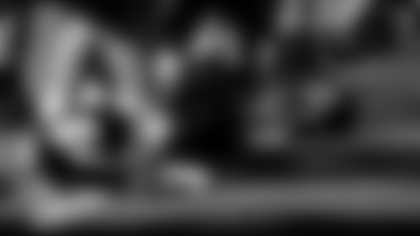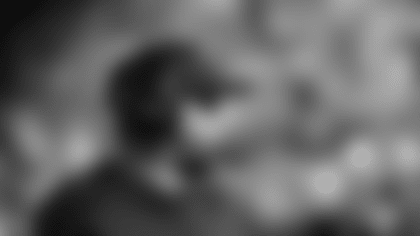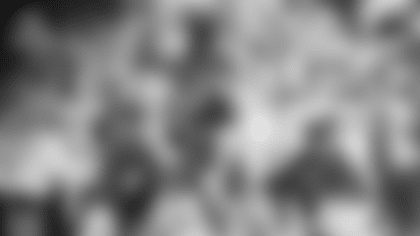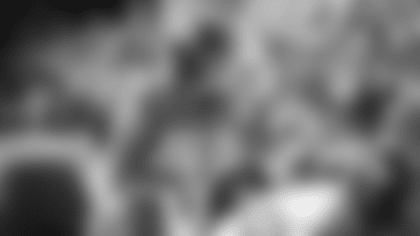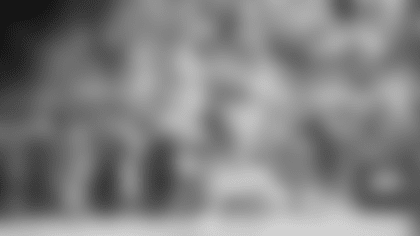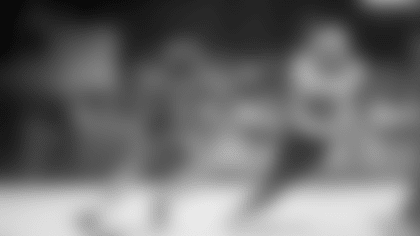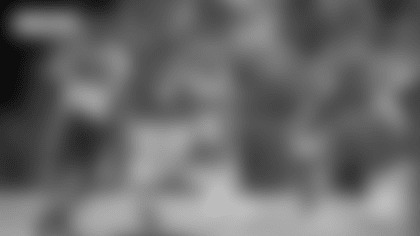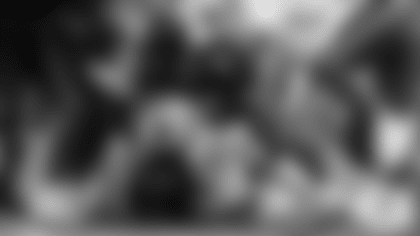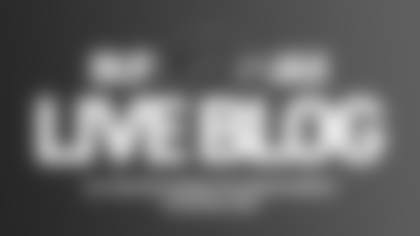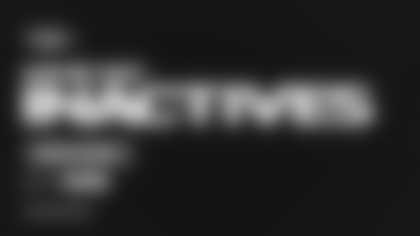When Jaguars Owner Wayne Weaver walked the halls of EverBank Field Tuesday morning, he liked what he saw.
Mostly, he liked what he felt -- or didn't feel, actually -- because what he saw were Jaguars players. That was a more-than-welcome sight for Weaver and the rest of the organization after the 136-day NFL lockout ended Monday.
What he didn't feel was negativity. Or animosity. Or resentment.
The lockout was over, football was back, and Weaver – entering his 17thseason as the Jaguars owner – said as of now, that's what matters.
The past is the past, and it's time to move on.
"There's no hangover from either side," Weaver told jaguars.com late Tuesday afternoon. "It was not us against the players. It was negotiating team against negotiating team. It was never personal. Players were excited to come back in here, and it was great to walk around and say hello to everybody and welcome them back.
"It was a long process and lots of frustration at times from not having the players around and getting prepared for the season. But at the end of the day, it came out in a way that allows us to complete a full season. It's great to be back."
Weaver said the energy and enthusiasm upon returning speaks to the makeup of the Jaguars' roster, a group he said he expects to continue the improvement made the last two seasons.
"Our guys are such great guys and there is good chemistry on our football team," Weaver said. "They believe in themselves and they believe we're giving them the resources to be successful. I think they really realize we're an ascending football team and we're moving in the right direction, making sure we build a franchise that's in the playoffs every year."
As much on Weaver's mind on Tuesday as what just happened is what must happen next, which for the Jaguars is a critical movement to sell a large number of tickets. While the lockout hurt momentum gained during last off-season's Team Teal initiative, Weaver said the reality is the same as last off-season: that tickets must be sold to make the NFL work in Jacksonville.
In that vein, Weaver said the coming days are critical in the team's quest to fill EverBank Field for the 2011 season.
Te Jaguars are currently about 17,000 seats short of reaching the level to avoid games being blacked out locally, and Weaver said the goal is to sell about 10,000 season tickets and make up the rest in group sales and single-game tickets.
"We've got a lot to get done," Weaver said. "We're prepared or that. We have a strategy and everybody around here is optimistic we're going to get it done, but it's going to be a Herculean job."
The Jaguars in 2010 had no games blacked out locally after having nine blacked out in 2009, and Weaver said getting the message to fans about the importance of filling the stadium is critical.
"We need to let the fans know we need them here in our stadium to be a viable NFL market," Weaver said. "And it has to be done quickly.
"Jacksonville is a great football market. We're a small market, but we're growing. We've grown maybe one-and-half generations of fans, and they're loyal fans. They always will be Jaguars fans. We have to be creative. We have to work harder than most markets. We've been able to do that over the years, but in this economy we have to work a little harder."
The Jaguars after an 8-5 start last season finished 8-8 to miss the playoffs for a third consecutive season. But Weaver has said throughout the off-season he believes the Jaguars are in the process of building a quality roster capable of soon contending for the Super Bowl, a stance he reiterated Tuesday.
"There's a tremendous energy in the community, and this building: 'Let's get back to work and let's get prepared for the season,''' Weaver said. "We think we have a chance to compete for the post-season in 2011. We think we were prepared for every contingency. We thought we'd get a deal at some point. We were never pessimistic.
"I believe we have a better chance because of the continuity of our coaching staff, our scouting and our organization that we have a chance to get off to a better start than some other clubs in the league."
Weaver also reiterated something he'd said during a meeting with the media Monday – that the Collective Bargaining Agreement reached between players and owners is a positive one for the future of the NFL in Jacksonville, so long as the Jaguars can fill EverBank.
"In 2006, I came out of the labor agreement unsatisfied and believing it was unsustainable," Weaver said. "The fundamental foundation the NFL is built on is parity. Your fans know every year when you go to camp you have the chance to compete. If you do the right things and run your business right, you have a chance to compete to be in the post-season.
"That's important. Parity is what builds the value of this league. All 32 teams on a given Sunday can win. That's certainly critical to everything we do. It's critical to our fans to know we can compete."
Weaver said the lower player costs in the new CBA will help Jacksonville, as will moving from a total revenue concept to a system in which revenue is essentially broken down into three "buckets:" television, business ventures and club-level revenue.
The first two are equally shared while the third is not.
"It's an incentive for us at the club level to work harder and to drive revenues," Weaver said. "Anytime you have an incentive, maybe you're a little more creative."
Weaver said his stance on the former CBA went beyond its effect on Jacksonville.
"You always have to look at, 'Is this good for the league?" and not look at, 'Is this just good for my club?''' Weaver said. "You have to have a labor agreement that works for all 32 clubs, the players and the fans.
"We didn't get everything we wanted, but neither did the players. That's kind of the definition of something that's fair and that can work for a long period of time."



